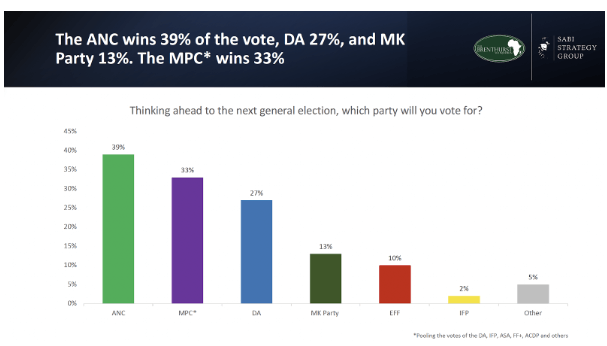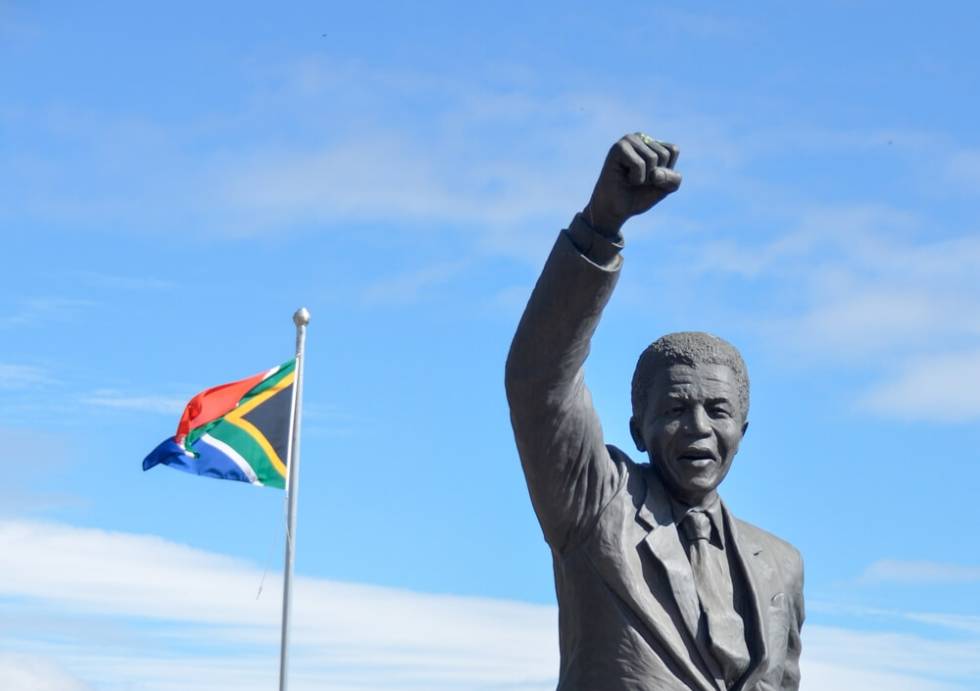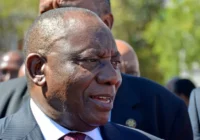The speaker of the South African parliament, Nosiviwe Mapisa-Nqakula, appeared in court in the past week, pleading not to be sent to prison for 12 counts of corruption. The former speaker, who resigned after being charged, argued that she should be given bail. Her argument was that the country’s overcrowded prisons would not be safe for her. These prisons are unhygienic, and riddled with disease, crime and sexual violence. Mapisa-Nqakula should know: she was the minister overseeing South African prisons from 2009 and 2012.
The former speaker is not alone in facing justice. Lonwabo Sambudla — the former chief executive of the African National Congress (ANC) Youth League’s financial arm and, perhaps more importantly, a son in law of Jacob Zuma, South Africa’s President between 2009 and 2018 — was before a court attempting to hang on to his three luxury vehicles. Sambudla wanted to hold on to a Bentley, a Ferrari and a Rolls-Royce despite the fact that he was apparently unable to pay for them.
The ANC elite plundered state resources
The two incidents above are just a snapshot of the quagmire into which the ruling ANC elite has descended into. The depth of corruption and cronyism were revealed in stark detail by a government commission led by Justice Raymond Zondo. Its reports revealed how the South African state has been effectively “captured” by the ANC elite.
As the BBC reported, the commission detailed in over 5,000 pages how the elite plundered state resources.
The evidence revealed how ANC leaders, including former and current government ministers, allegedly participated or encouraged looting at a massive cost to the country.
This included crippling the country’s revenue service, bringing the national carrier South African Airways to its knees, looting the agency that runs the country’s passenger railways, and interfering with the public broadcaster, the SABC.
The secret service was also weakened through the appointment of senior spies who prevented investigations from taking place at the behest of Zuma and others who were seen as close to him.
“The blurring of lines between the ANC and the state was laid bare, party interests were prioritised, crucial government departments were used for the benefit of individuals, resulting in manipulation and political influences,” said South African political analyst Dr Mcebisi Mdletyana.
The political price of “state capture”
The South African public has long resigned itself to the failure of Eskom, the state electricity provider, to provide an uninterrupted supply of electricity. Power goes out for hours at a time. Sadly, in recent months, water has become equally scarce. Johannesburg, and its neighbouring black suburb of Soweto, have been chronically short of water for sometime now.
This failure of the ANC administration to provide essential public services explains the collapse in support for the party as the Brenthurst Foundation lays bare in a detailed analysis. February polling, the third in a series, showed ANC support declining to below 40% for the first time. The foundation provided the following summary.
A national survey of voters conducted on behalf of The Brenthurst Foundation has found that the ANC’s support has fallen to 39%, making a coalition government highly likely following the general election in May this year.
The biggest gainers have been the Democratic Alliance (DA), which has risen to 27% from 23% in October last year and Jacob Zuma’s MK party which has 13% of the vote, making it the third largest party with the EFF falling from 17% in October last year to just 10%.
With 33% of the vote, the Multi-party Charter (MPC) coalition (DA, IFP, ActionSA, ACDP and FF+ among others) is just 6% behind the ANC.

Other polling suggests the ANC’s share of the vote will be higher and the electoral outcome is very much dependent on the size of the turnout. Even so, few polls give the ANC more than 50% of the vote.
Frans Cronje, the director of the Social Research Foundation, says that overall recent surveys give a sense of where the country is going. “If you average out all the polls done, it’s clear the DA will end up at around 24% … the ANC at around 45%, but after the emergence of the MK Party [of Jacob Zuma], this is down to 42%,” he says.
Certainly, the ANC’s share has been on the slide. It won 57.50% of votes in the last general election in 2019, down from 62.15% in 2014.
In South Africa’s proportional representation system and dip below 50% will leave the ANC dependent on political allies. It would be the first time since the National Party won the 1948 election, and brought in apartheid, that a governing party would require an ally. Few doubt the ANC will be the largest party after the May election. The real question is who will be the ANC’s allies in a coalition.
Unstable coalition politics likely at the national level
South Africans are unfamiliar with coalition politics at a national level, but have become all too familiar with them in the country’s provinces and regions. There were 32 regional and local coalitions running administrations in March 2024. Many are chaotic and unstable, especially those in Johannesburg, Tshwane and Nelson Mandela Bay.
The coalitions are often sustained by just one or two votes from tiny local parties who can hold their larger allies hostage. These tiny parties are always threatening to quit or change sides and bring the administration down. How an alliance government might operate at a national level is something South Africans have no memory or experience of.
These problems come as there is growing international involvement in the election process. In the past, politicians have mobilised social media for political ends. Bell Pottinger, the British public relations firm, collapsed after it was exposed for attempting to stir up racial hatred. The firm had been hired by Zuma’s allies.
Currently, the Russians and Chinese are threatening to use disinformation in an attempt to keep their ally — the ANC — in power. Karen Allen, who earlier worked for the BBC, summed up the South African situation.
In the current environment, now supercharged with artificial intelligence (AI), Russia is accused number one in information operations, using experience from its international troll farm — the Internet Research Agency. Russia also appears to consider Africa an attractive target, given the weak checks and balances in many of the continent’s fragile democracies.
The Africa Center for Strategic Studies identified 23 campaigns targeting Africa since 2014; 16 linked to Russia. The Digital Forensic Research Lab warns that the “political and social instability caused by influence operations” has ramifications beyond countries’ borders.
Given the tensions and uncertainties surrounding the May 2024 election it will take all the resources of the Independent Election Commission to ensure that there is a free and fair election. There is a great deal at stake and the future of South African democracy hangs in balance.
The views expressed in this article are the author’s own and do not necessarily reflect Fair Observer’s editorial policy.
Support Fair Observer
We rely on your support for our independence, diversity and quality.
For more than 10 years, Fair Observer has been free, fair and independent. No billionaire owns us, no advertisers control us. We are a reader-supported nonprofit. Unlike many other publications, we keep our content free for readers regardless of where they live or whether they can afford to pay. We have no paywalls and no ads.
In the post-truth era of fake news, echo chambers and filter bubbles, we publish a plurality of perspectives from around the world. Anyone can publish with us, but everyone goes through a rigorous editorial process. So, you get fact-checked, well-reasoned content instead of noise.
We publish 2,500+ voices from 90+ countries. We also conduct education and training programs
on subjects ranging from digital media and journalism to writing and critical thinking. This
doesn’t come cheap. Servers, editors, trainers and web developers cost
money.
Please consider supporting us on a regular basis as a recurring donor or a
sustaining member.
Will you support FO’s journalism?
We rely on your support for our independence, diversity and quality.







Comment